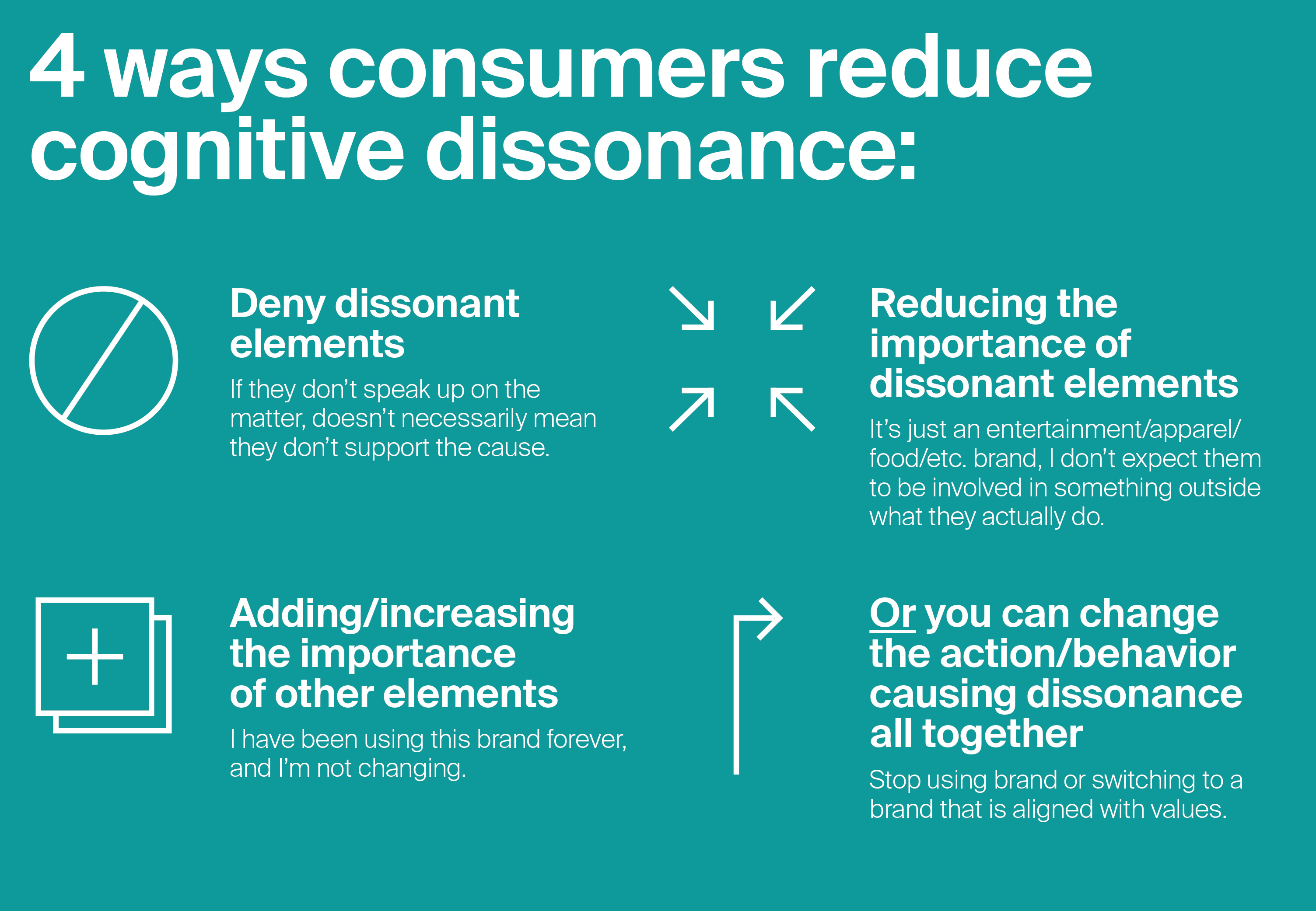The concept of “purpose-driven” brands has developed into a mainstay term over the past few years as consumers become more attuned to what companies really stand for. 62% of consumers say they want companies to stand up for the issues they are passionate about. A step further, 75% of Gen Z consumers say they will do research to see if a company is honest when it takes a stand on issues. In a recent study we conducted with CMOs on navigating the COVID-19 era, a renewed understanding of the power of purpose was one of the major themes discussed during this time of crisis.
But what motivates consumers to seek brands that are similar to themselves and their values?
This tendency can be understood by examining cognitive dissonance—one of the most influential theories in social psychology conceptualized by Leon Festinger. The theory holds that people will feel psychological tension when they act in a way that goes against their values or what they believe about themselves, and therefore will be motivated to reduce this feeling of dissonance.
So, when a brand’s action (or inaction) conflicts with a consumer’s beliefs, cognitive dissonance occurs.
For example:
Belief: I consider myself to be a socially conscious individual
Conflicting behavior: I continue to support a brand that is absent in taking a stance on critical issues

4 ways consumers reduce cognitive dissonance
- Deny dissonant elements (If they don’t speak up on the matter, doesn’t necessarily mean they don’t support the cause.)
- Reducing the importance of dissonant elements (It’s just an entertainment/apparel/food/etc. brand, I don’t expect them to be involved in something outside what they actually do.)
- Adding/increasing the importance of other elements (I have been using this brand forever, and I’m not changing.)
- Or you can change the action/behavior causing cognitive dissonance all together (Stop using a brand or switching to a brand that is aligned with values.)
Interestingly, we are seeing a distinct shift towards consumers actively seeking brands aligned with their values and beliefs. This means more often, people will adjust their behavior if they find that a brand is NOT acting according to what they believe in. In a 2020 study by Zeno Group, 76% of consumers stated that they have taken action when a brand has done something they disagree with. In psychology, behavioral change is viewed as one of the more challenging ways of eliminating inner conflict. This is a fascinating movement to see—more people are not merely reframing their perspective to seek comfort in existing choices; they are seeking change.
Brand implications of cognitive dissonance
Brands leading with change are making considerable strides in creating meaningful impact in aligning their own values with their actions. As the world has awakened to the pervasive racial injustice problem in the U.S., a flood of companies has broken their silence on the Black Lives Matter movement. Recently, brands such as Talkspace, Patagonia, the North Face, REI, Ben & Jerry’s, and others have put forth substantial action in ceasing advertising spend with Facebook, to demonstrate they don’t stand for the harmful spread of disinformation or the promotion of hate and violence. The over one thousand companies that have joined the boycott over the past weeks have helped normalize changing behavior when cognitions aren’t consistent.
Brand leaders need to understand the workings of cognitive dissonance, which amplifies the need for consistency across all facets of brand. Motivation to reduce cognitive dissonance manifests in both directions—how brand leaders manage a brand’s cognitions to seek consistency and how consumers evaluate their relationship with brands to find consistency in themselves.
Karli Buescher is an Associate Strategist, Business Analytics + Insights.



